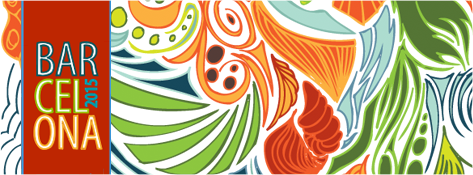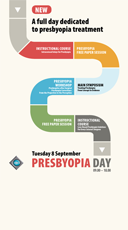Posters
(results will display both Free Papers & Poster)
Testing a novel gel for ophthalmic surgery on human corneas
Poster Details
First Author: P.Giardini ITALY
Co Author(s): C. Gatto P. Giardini N. Hauranieh L. Giurgola J. Damato Tothova
Abstract Details
Purpose:
EYEDRO is a novel corneal gel intended to maintain corneal hydration, epithelial integrity and corneal clarity during cataract and vitreoretinal surgery procedures. The aim of the present study was to investigate the effects of the gel on human donor corneas.
Setting:
Experimental design: Alchilife Srl, experiment execution: International Center for Ocular Physiopathology, Zelarino, Italy
Methods:
Organ-cultured human donor corneas not suitable for transplantation were placed in an artificial chamber to mimic physiological conditions of intraocular pressure, temperature, humidity and artificial tears flow. Corneal surface was covered with Eyedro gel (AL.CHI.MI.A. S.r.l.), or BSS (control) for 20 min. Central corneal thickness (OCT Visante), corneal transparency (Patekh et al., 2014), and epithelium and endothelium viability (fluorescein and trypan blue staining) were evaluated before, and 40 and 180 min. after gel application. Presence of inflammation markers F4/80 and MPO and apoptotic cells (TUNEL/caspase 3) was investigated after tissue fixation and immunohistochemistry on tissue sections.
Results:
No epithelial and endothelial cell damage was detected at any tested interval. Corneal transparency and thickness were comparable to that of control tissue for the whole experiment. Morphology of histological sections was regular and comparable expression of macrophages marker F4/80 to that of control tissue was found in the limbus, without migration towards the epithelium or central cornea. Few apoptotic cells were detected in the epithelium and stroma of both control and Eyedro-treated donor tissues.
Conclusions:
EYEDRO exhibited an excellent biocompatibility with human donor corneas. No adverse effects were observed on tissue thickness, transparency, epithelial and endothelial viability, apoptotic and inflammatory profile.
Financial Disclosure:
One or more of the authors receives consulting fees, retainer, or contract payments from a company producing, developing or supplying the product or procedure presented





